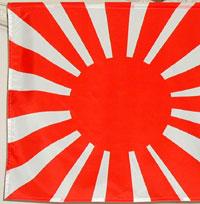Minority groups of Japan call for passage of broad anti-discrimination law
Japan needs a broad anti-discrimination law to help stop rampant violations of the human rights of minorities and foreigners, representatives of minority groups said Monday.

Japan 's constitution already prohibits racial discrimination, but activists told reporters in Tokyo that a more comprehensive law is needed to protect human rights and punish offenders.
"A law is not sufficient, but it is necessary," said Kinhide Mushakoji, president of the Japan chapter of the International Movement against All Forms of Discrimination and Racism.
A U.N. mission on racism in Japan concluded in a report in January that minorities including ethnic Koreans and Chinese, the Ainu indigenous group, and the so-called "untouchables" suffer discrimination in education, housing, health care and employment.
The report, by U.N. Special Rapporteur Doudou Diene, also said minorities are largely excluded from the government, and that the country is marked by a discriminatory mentality toward minorities and ignorance of their culture.
The ruling Liberal Democratic Party considered human rights protection legislation last year, but the party was unable to fully agree on a bill and the idea was shelved.
The minority activists, speaking at the Foreign Correspondents' Club of Japan, said they hoped the report would draw international attention and pressure on the Japanese government to crack down on racism.
"In Japan we have a myth which says the Japanese archipelago is inhabited by a single race, the Japanese," said Mushakoji. "Now this myth is going to be challenged."
The activists lauded the report's conclusion of additional legislation outlawing discrimination, which they said would act as a deterrent and would also help teach Japanese about minorities.
Shigeyoshi Kumisaka, president of the Buraku Liberation League, which represents the descendants of Japan 's feudal untouchable class, said secret lists of those with outcast backgrounds are still sold to businesses and families who don't want to taint themselves by employing or marrying untouchables.
"In Japan there is no law combatting such discrimination ... which exploits racism for the purpose of making money," Kumisaka said.
The activists acknowledged that changes over the years have helped minority groups. A 1993 government study of the untouchables known in Japan as Burakumin helped shed light on their problems, while the government officially recognized the Ainu as Japan 's indigenous people in 1997.
Resistance to allowing foreigners into Japan is also changing as the country faces a population decline and labor shortage.
Still, the activists said the bedrock xenophobia of Japanese society was getting worse, fueled in part by fear of foreign terrorists, the growing conservatism of the government and worries about foreigner-linked crime.
"The Japanese government is getting more and more racist and more and more anti-foreign, but there is a realization that Japan cannot remain closed to foreigners," said Mushakoji, reports the AP.
D.M.
Subscribe to Pravda.Ru Telegram channel, Facebook, RSS!





